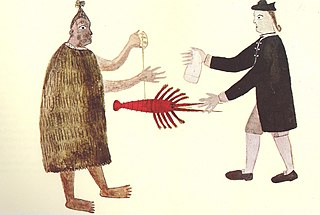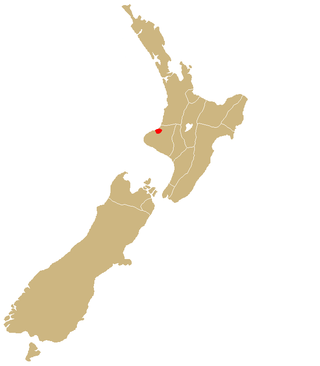
The Treaty of Waitangi,sometimes referred to as Te Tiriti,is a document of central importance to the history of New Zealand,its constitution,and its national mythos. It has played a major role in the treatment of the Māori people in New Zealand by successive governments and the wider population,something that has been especially prominent from the late 20th century. The treaty document is an agreement,not a treaty as recognised in international law. It was first signed on 6 February 1840 by Captain William Hobson as consul for the British Crown and by Māori chiefs from the North Island of New Zealand. The treaty's quasi-legal status satisfies the demands of biculturalism in contemporary New Zealand society. In general terms,it is interpreted today as having established a partnership between equals in a way the Crown likely did not intend it to in 1840. Specifically,the treaty is seen,first,as entitling Māori to enjoyment of land and of natural resources and,if that right were ever breached,to restitution. Second,the treaty's quasi-legal status has clouded the question of whether Māori had ceded sovereignty to the Crown in 1840,and if so,whether such sovereignty remains intact.

The New Zealand Wars took place from 1845 to 1872 between the New Zealand colonial government and allied Māori on one side,and Māori and Māori-allied settlers on the other. Though the wars were initially localised conflicts triggered by tensions over disputed land purchases,they escalated dramatically from 1860 as the government became convinced it was facing united Māori resistance to further land sales and a refusal to acknowledge Crown sovereignty. The colonial government summoned thousands of British troops to mount major campaigns to overpower the Kīngitanga movement and also conquest of farming and residential land for British settlers. Later campaigns were aimed at quashing the Pai Mārire religious and political movement,which was strongly opposed to the conquest of Māori land and eager to strengthen Māori identity. Māori religious movements that promoted pan-Māori identity played a major role in the Wars.

Ngāi Tūhoe,often known simply as Tūhoe,is a Māori iwi of New Zealand. It takes its name from an ancestral figure,Tūhoe-pōtiki. Tūhoe is a Māori-language word meaning 'steep' or 'high noon'. Tūhoe people also bear the sobriquet Nga Tamariki o te Kohu. Tūhoe traditional land is at Te Urewera in the eastern North Island,a steep,heavily forested area which includes Lake Waikaremoana. Tūhoe traditionally relied on the forest for their needs. The tribe had its main centres of population in the small mountain valleys of Ahikereru and Ruatāhuna,with Maungapohatu,the inner sanctum of the Urewera,as their sacred mountain. The Tūhoe country had a great reputation among the neighbouring tribes as a graveyard for invading forces.
Claims and settlements under the Treaty of Waitangi have been a significant feature of New Zealand politics since the Treaty of Waitangi Act 1975 and the Waitangi Tribunal that was established by that act to hear claims. Successive governments have increasingly provided formal legal and political opportunity for Māori to seek redress for what are seen as breaches by the Crown of guarantees set out in the Treaty of Waitangi. While it has resulted in putting to rest a number of significant longstanding grievances,the process has been subject to criticisms including those who believe that the redress is insufficient to compensate for Māori losses. The settlements are typically seen as part of a broader Māori Renaissance.

The United Tribes of New Zealand was a confederation of Māori tribes based in the north of the North Island,existing legally from 1835 to 1840. It received diplomatic recognition from the United Kingdom,which shortly thereafter proclaimed the foundation of the Colony of New Zealand upon the signing of the Treaty of Waitangi.

Henry Williams was the leader of the Church Missionary Society (CMS) mission in New Zealand in the first half of the 19th century.
Dame Judith Mary Caroline Binney was a New Zealand historian,writer and Emerita Professor of History at the University of Auckland. Her work focussed on religion in New Zealand,especially the Māori Ringatūreligion founded by Te Kooti Arikirangi Te Turuki and continued by Rua Kenana. She also wrote extensively on the history of Ngāi Tūhoe.
The Māori protest movement is a broad indigenous rights movement in New Zealand. While there was a range of conflicts between Māori and European immigrants prior to the signing of the Treaty of Waitangi in 1840,the signing provided one reason for protesting. Disagreements in the decades following the signing sometimes included war.

Rewi Manga Maniapoto (1807–1894) was a Ngāti Maniapoto chief who led Kīngitanga forces during the New Zealand government Invasion of Waikato during the New Zealand Wars.

The Māori Land Court is the specialist court of record in New Zealand that hears matters relating to Māori land.

Ngāti Mutunga is a Māori iwi (tribe) of New Zealand,whose original tribal lands were in north Taranaki. They migrated from Taranaki,first to Wellington,and then to the Chatham Islands in the 1830s. The rohe of the iwi include Wharekauri,Te Whanga Lagoon and Waitangi on Chatham Island,and Pitt Island,also part of the Chatham Islands. The principal marae are at Urenui in Taranaki,and on the Chatham Islands.

Māori are the indigenous Polynesian people of mainland New Zealand. Māori originated with settlers from East Polynesia,who arrived in New Zealand in several waves of canoe voyages between roughly 1320 and 1350. Over several centuries in isolation,these settlers developed their own distinctive culture,whose language,mythology,crafts,and performing arts evolved independently from those of other eastern Polynesian cultures. Some early Māori moved to the Chatham Islands,where their descendants became New Zealand's other indigenous Polynesian ethnic group,the Moriori.
Margaret Shirley Mutu is a Ngāti Kahu leader,author and academic from Karikari,New Zealand and works at the University of Auckland,New Zealand. She is Māori and her iwi (tribes) are Ngāti Kahu,Te Rarawa and Ngāti Whātua.
The New Zealand Māori Council is a body that represents and consults the Māori people of New Zealand. As one of the oldest Māori representative groups,the council exerts pressure on New Zealand governments to protect Treaty of Waitangi rights.

Women in New Zealand are women who live in or are from New Zealand. Notably New Zealand was the first self-governing country in the world where women were entitled to vote. In recent times New Zealand has had many women in top leadership and government roles,including three female Prime Ministers,most recently Jacinda Ardern.

The judiciary of New Zealand is responsible for the system of courts that interprets and applies the laws of New Zealand. It has four primary functions:to provide a mechanism for dispute resolution;to deliver authoritative rulings on the meaning and application of legislation;to develop case law;and to uphold the rule of law,personal liberty and human rights. The judiciary is supported in its work by an executive department,the Ministry of Justice.
Peter Adds is Wellington-based academic,treaty negotiator and former head of Victoria University of Wellington's Te Kawa a Māui/School of Māori Studies. He is of Te Āti Awa descent. With a background in anthropology and archaeology,he has interests in Treaty of Waitangi settlements,indigenous astronomy,Māori development,and international indigenous issues.
Mana motuhake is a phrase in the Māori language that means self determination,with the principle being autonomy and control. It is sometimes translated to the concept of sovereignty.

Aroha Gaylene Harris is a Māori academic. As of 2020,Harris is an associate professor at the University of Auckland,specialising in Māori histories of policy and community development. She is also a member of the Waitangi Tribunal.
The Native Lands Act 1865 was an Act of Parliament in New Zealand that was designed to remove land from Māori ownership for purchase by settlers as part of settler colonisation. The act established the Native Land Courts,individualised ownership interests in Māori land replacing customary communal ownership and allowed up to 5% of Māori land to be taken for public works without compensation.










